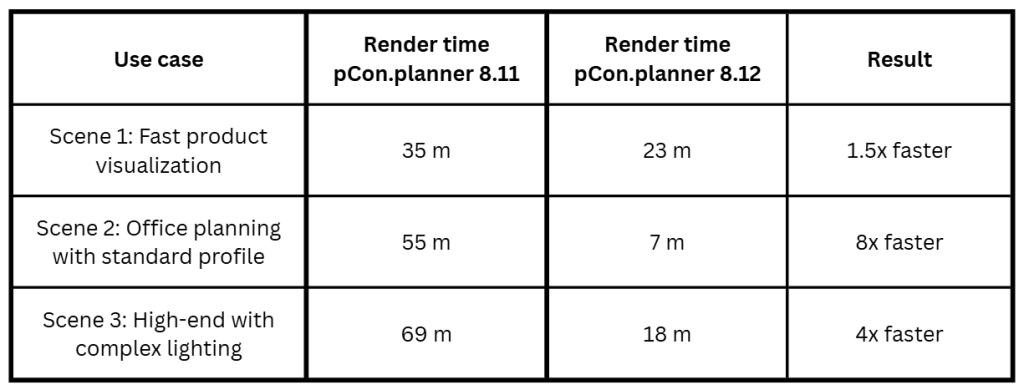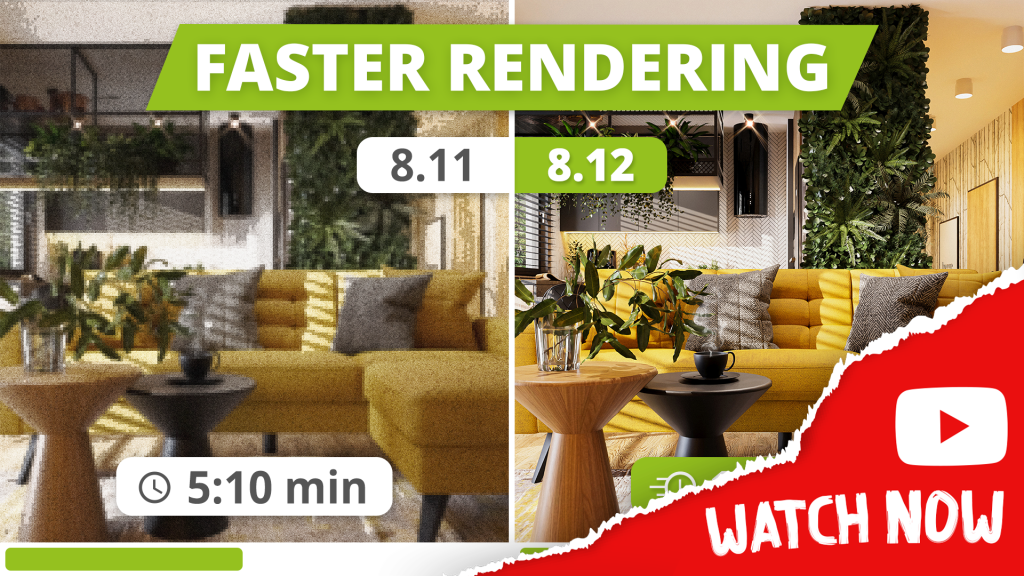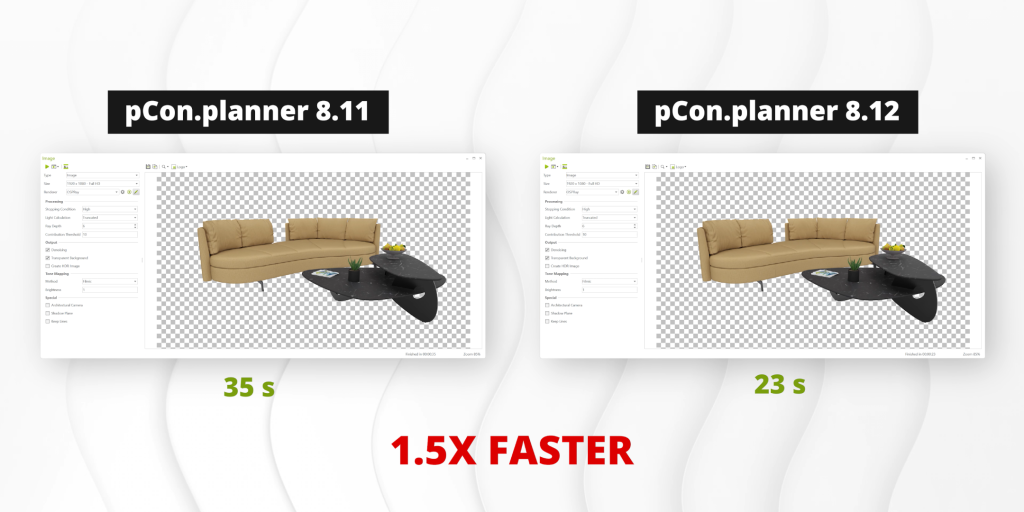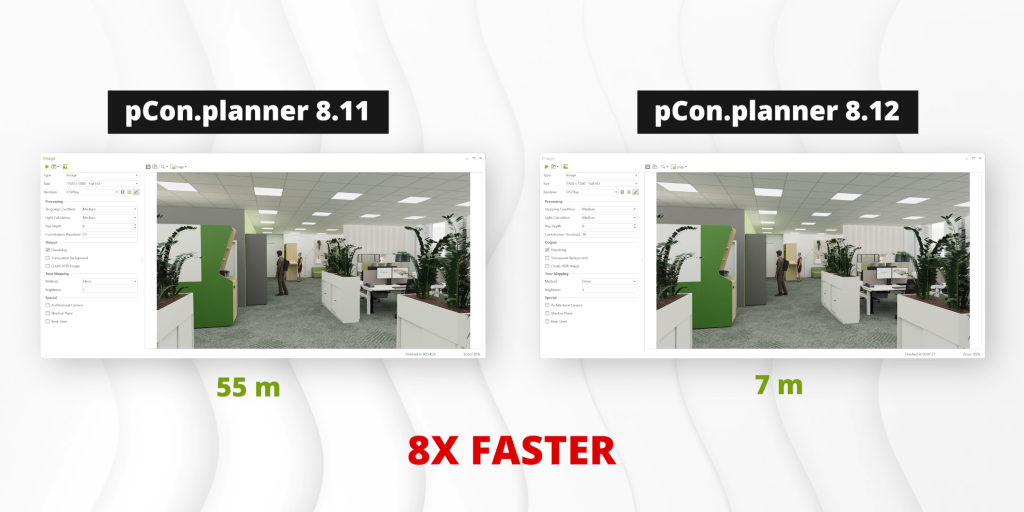Renderings are a key element of visual communication in space and product planning. With version 8.12 of pCon.planner, rendering performance has improved significantly — and noticeably so. Depending on the scene, rendering is now at least twice as fast as before, and in some cases even up to five times faster. In our latest video tutorial, we demonstrate how these improvements look in real-world use and explain what really matters when choosing the right hardware.
Enhanced performance thanks to improved rendering
To provide practical insights, we’ve selected three typical planning scenarios and compared them side by side — using both version 8.11 and 8.12 of pCon.planner. While the processor plays a central role during rendering, the graphics card is key to smooth real-time planning performance.
For the test setup, we used a high-performance notebook equipped with an Intel Core Ultra 7 165H processor, 32 GB RAM, and a NVIDIA RTX 1000 Ada Generation GPU. The system requirements can be found here.
Three use cases in direct comparison
Scene 1 – Quick product visualization
A minimalistic setup featuring a set of furniture — without walls or light sources. This type of rendering is often used for product previews during the quotation process.
Results: Improvement approx. 35%
- Version 8.11: 35 seconds
- Version 8.12: 23 seconds
Scene 2 – Office layout using the standard profile
A fully furnished office space with various light sources and materials — a classic use case in day-to-day planning.
Results: Improvement over 85%
- Version 8.11: 55 minutes
- Version 8.12: 7 minutes
Scene 3 – High-end visualization with complex lighting
Multiple light sources, premium materials, reflections, and background elements — ideal for high-quality presentations.
Results: Improvement approx. 75%
- Version 8.11: 1 hour 9 minutes
- Version 8.12: 18 minutes
Summary: More efficiency for everyday planning

The enhanced performance in pCon.planner 8.12 is evident across all use cases — from quick product previews to sophisticated visualizations of entire spaces. For those who frequently create renderings for client presentations or project proposals, this means significantly shorter waiting times and more flexibility when exploring design variations.
Watch the rendering benchmark video now
Did you like the video?
Subscribe to our YouTube channel and stay informed about new tutorials! Don’t miss any updates – subscribe to our pCon Blog via the footer below.




